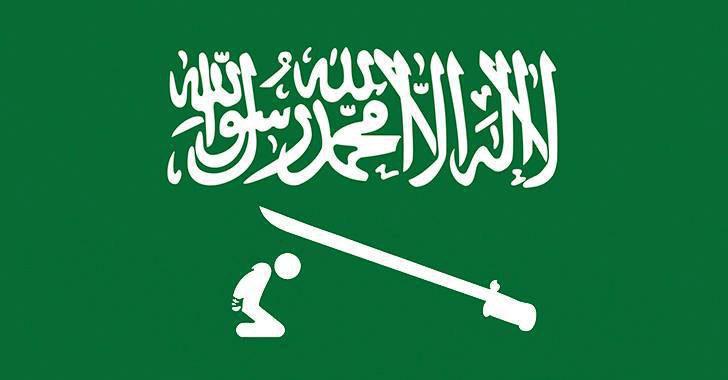
As the World Day Against the Death Penalty on October 10, 2019 approaches, Saudi Arabia has set a new historic record for executions. Through October 7, 2019, the ESOHR has tallied 164 executions for the year, exceeding the previous record of 157, set in 2015.
The increasing number of sentences carried out indicates the inability to address many of the causes of certain criminal offenses, as well as the expanded use of the death penalty to include even peaceful dissidents, including children. In particular, the largest proportion of sentences carried out are based on charges not considered to be the most serious in international law, including 68 on drug charges and 37 on political charges or charges related to the exercise of legitimate rights or freedom of opinion.
Among the death sentences carried out since the beginning of 2019, was a mass execution of 37 people on April 23, 2019. The sentences issued against some of these individuals were based on charges such as participating in demonstrations, expressing opinions, and practicing religious rites. Of the 37 individuals executed, at least six were minors.
In addition, in its executions this year, the Saudi government ignored numerous appeals from UN experts regarding the cases of Munir Al Adam, Mujtaba al-Sweikat, Salman al-Quraish, Abdulkarim al-Hawaj, Abbas al-Hassan, Abdulaziz Al Sahwi, Abdullah Al Tarif, Ahmad Al Rabia, Fadel Labad, Haidar Al Leif, Hussein Al Rabia, Hussein al-Humaidi, Hussein al-Abboud, Jaber al-Marhoun, Mustafa Darwish, Said al-Skafi, Salim al-Harbi, Talib al-Harbi, Tahir al-Harbi, Ali al-Ashour, Ali al-Muhanna, Mohammad al-Ashour, Sheikh Mohammad Attieh, and Yusuf al-Amri.
The ESOHR is following numerous cases with a confirmed lack of fair trials, in which many of the accused were subjected to various forms of torture that were not investigated despite confirmation from the accused and their lawyers before the judge. The ESOHR also has observed the accused being deprived of the right to defend themselves by appointing a lawyer.
The Saudi government received sharp criticism after the April mass execution. On 24 April 2019, the UN High Commissioner for Human Rights, Michelle Bachelet, described the mass execution of 37 citizens on April 23, 2019 as appalling, and she condemned them for being carried out despite repeated additional appeals by UN human rights mechanisms. In her opening speech to the Human Rights Council, at its 41st session, on June 24, 2019, Bachelet strongly condemned the mass execution carried out by the Saudi government and denounced the abuses.
In addition to the Commissioner, the official spokeswoman for the European Union Foreign Affairs and Security Policy, Maja Kocijancic, viewed the mass execution as confirmation of the country’snegative trend. She also expressed serious concerns about the fairness of trials, a basic international standard of justice, describing the execution of minors as a serious violation.
On July 15, 2019, UN special rapporteurs sent a letter to the Saudi government regarding the execution of Munir Al Adam, noting the violations involved in the mass execution of April 2019. The letter stated that Al Adam and others were victims of ill-treatment and torture and were unable to obtain their basic rights, including the right to a fair trial; it also explained that they were the subject of several previous communications from UN rapporteurs.
Despite international criticism of its executions, the Saudi government continues to threaten the lives of dozens of individuals, including minors, with this bloody punishment. There is no transparency in the Saudi government’s handling of executions, and there is a policy of fear and intimidation against the families; however, ESOHR monitoring estimates that 39 detainees are currently at risk of execution.
ESOHR statistics indicate that there are seven minorsamong those at risk of the death penalty. In addition, four individuals are facing a final death sentence and nine a preliminary death sentence. The trial of 23 people is ongoing, and two are awaiting the ruling of the Court of Appeal after their second verdict.
The ESOHR’s documentation also confirms that several of these cases lack the conditions for a fair trial, including subjecting victims to torture and ill-treatment, extracting confessions, and sentencing them despite confirmation of their torture before the judge and the denialof their right to defend themselves.
On the World Day Against the Death Penalty, the ESOHR believes that Saudi Arabia’s use of the death penalty has become more arbitrary than ever, expanding its use against children, political activists, and human rights advocates, as well as individuals facing non-serious charges, such as drug charges.
Because of Saudi Arabia’s violation of its international agreements, especially the Convention Against Torture and Other Cruel, Inhuman or Degrading Treatment or Punishment and the Convention on the Rights of the Child, and its continued threats to individuals despite international criticism, the ESOHR believes that more vigorous activity is required on the part of the HRC, as well as continued pressure on the Saudi government in all arenas to stop the death penalty and protect those condemned to death.
